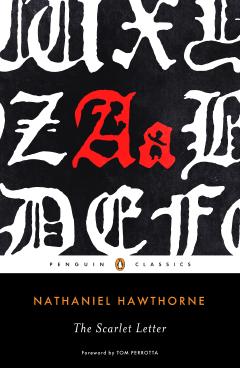
- Title
- The Scarlet Letter
- Author
- Nathaniel Hawthorne
- Format
Over dinner, Isabel told me they re-read this because their students are reading it in Literature class. Isabel said it was so much better than they remembered. I know we read this in High School, but I’m sure I “read” it in my usual way at the time, which is to say I skimmed the chapters, read the dialog, and hoped for the best. (I didn’t enjoy reading fiction until I was in my late twenties.)
Anyway, long story short I decided it was high time I actually read it for real. It was honestly so much better than I expected. I guess I was naively expecting a lot of puritanical moralizing at the expense of a woman. And in a sense I got that. But Hawthorne also gives us a strong woman, a spirited irrepressible little girl, and a sort of schizophrenic rebuke of the very moralizing he piles on us. It feels surprisingly modern, the way Hawthorne refuses to tell us right and wrong, and I think it contributes to the timelessness of the story. I think a reasonable person could argue all sides here with strong textual support. And so, in the end, almost paradoxically, we find a feminist hero in puritan garb, subjugating her outer life, but not her inner self, to the oppressive morality of her universe.
Somewhat by chance, I’ve been steeped in 70s/80s Gay stories recently. I watched both The Battle of the Sexes and Milk this week, and am about halfway through the audiobook edition of Alysia Abbott’s Fairyland. So bear with me when I stretch authorial intent way past the breaking point and say I almost see a coming out story in The Scarlet Letter. I was really taken by the contrast between Hester’s life—true to her self and triumphant—and Dimmesdale’s. His inability to live honestly with his own self undermines him. Both these characters participated in the same “sin”, within the same puritanical cultural context. And yet one is free and the other is utterly haunted until he finally comes clean. (Of course he then immediately dies. And I’m not sure what to make of Hester’s ending. But still.)
Anyway, bad interpretations aside, The Scarlet Letter is beautifully and thoughtfully written, thematically complex, and powerful. When I told my mother that I was pleasantly surprised by it, she said “These books are classics for a reason.” Indeed.
